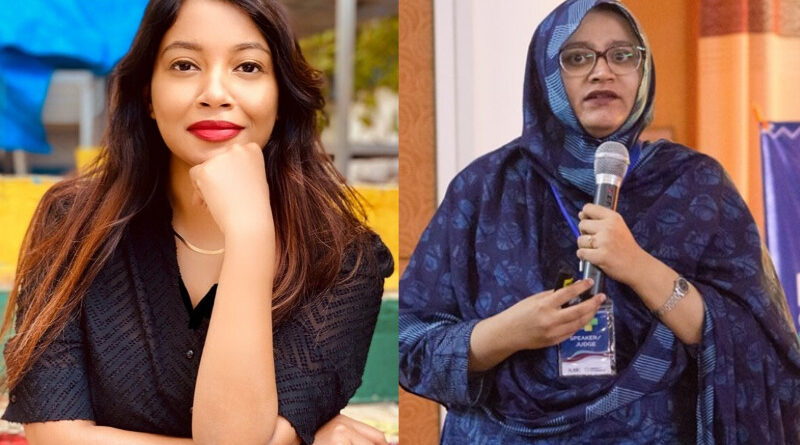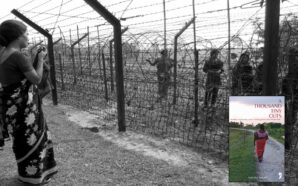Tell us about CaterpillHERs – when and how was it launched?
Hira: CaterpillHERs is a digital learning platform and accelerator that helps women build and scale their businesses and careers through cohort-based acceleration programs, 1:1 mentorship, and access to the community. It was launched in 2019 after I moved back to Pakistan from the US and went through a post-fellowship boot camp where we had to pitch an idea for small grant money. We started off as a women’s entrepreneurship boot camp and later realized the magnitude of the problem and pivoted into building cohort-based courses in multiple tracks.
Faiza: I joined CaterpillHERs after Hira and I had a chat about the need for a career acceleration program for women as we don’t have such programs locally and the international programs are very expensive. We wanted to build something virtual that women can access easily and is in English so everyone can learn, no matter their geographical location.
We love the name/title. Can you tell us how it came about?
Hira: Haha I get this a lot. I’d say I am a copywriter, so I did a good job there. Honestly, I wanted something that represented growth and transformation. If you read about how a caterpillar transforms into a butterfly, it is one of the most fascinating transformations found in nature. That’s what CaterpillHERs signifies as a movement for women. I am so proud to say that the chrysalis is splitting open, and we can already see so many butterflies emerging.
Who is your target audience, and why?
Faiza: Women only, mostly college graduates who want to excel in their careers, whether it is entrepreneurship or a job. We want to give them a structured program, access to excellent mentors, and a community that they can rely on. We both have experience building women-focused programs and want to help as much as we can to improve gender parity in entrepreneurial, technology, and freelancing ecosystems.
Your organization focuses on enabling female entrepreneurs and professionals. What are some of the challenges you feel they encounter? Are the challenges any different from those faced by their counterparts on the same journey?
Faiza: Discrimination, sexism, microaggressions, lack of family support, lack of gender inclusion organizational policies, lack of access to opportunities, mentors, and sponsors. We know the struggle very well, and we want to make sure that they get the help they need.
What are some of the core areas CaterpillHERs focuses on?
Hira: We focus on building acceleration programs in two verticals: Entrepreneurship and Careers. There are multiple tracks into these verticals, but they all come under these two umbrellas.
What are the different programs and initiatives that come under your organization?
Hira: CaterpillHERs has so far run three cohorts for women-led businesses to help them scale and expand their organizations with the help of the Bay Area’s leading accelerator, Miller Center. We also have run two cohorts focused on freelancing in our career vertical. Right now, we are planning to launch two more tracks in our career vertical before the end of this year.
How is CaterpillHERs impacting lives through its body of work?
Faiza: We are providing women with the kind of support they need so they can excel in their businesses and careers and can make money to improve their lives. We help them build and improve their skillsets, gain confidence, find community and fight imposter syndrome to become successful.
Have you introduced any new initiatives?
Hira: Yes, our career accelerator vertical is relatively new. We only launched it last year in Nov and have already done two cohorts in our first track, which is all about freelancing. We are also planning to launch multiple other tracks and are working on finding the instructors and building curriculums for them.
Faiza: My focus is mainly on the career acceleration program, and we want to create boot camps that improve the chances of our participants getting better opportunities and making top bucks.
What are your plans for the future?
Hira: To launch multiple cohort-based courses, to make our community vibrant and full of amazing women, to bring more mentors, and eventually make CaterpillHERs one place where women come to grow their businesses and careers while making long-lasting connections with other women and mentors who they otherwise cannot find in overly saturated social media platforms and Facebook communities.
What is your opinion do enablement and impact mean and entail?
Faiza: For me, it means equal access to opportunities for learning and work. It means providing the right tools and support to ensure that they are on the right track. We measure the impact by focusing on outcomes, so for the freelancing track, nearly 50 percent of the participants from cohort one have already gotten a project on Upwork, and the cohort is still in progress.
From a Pakistani entrepreneurship perspective… how fertile is the market, and how can women leverage its full potential?
Hira: I think from the access to knowledge and funding perspective, there has never been a better time in the Pakistani entrepreneurship ecosystem. There are incubators and ESOs everywhere, and access to knowledge about how to start a business has become very easy especially for women because a lot of organizations are pushing it as their strategic initiative. Women in our society have not been exposed to entrepreneurship as a career choice this is why mentorship and role models play an essential role to give them the direction as well as an inspiration to build their dream business and become a CEO they take inspiration from.
As far as funding a start-up is concerned, we do know it is a global phenomenon that women entrepreneurs get less funded when compared to men… what is the situation in Pakistan?
Hira: It is terrible, and we all know it. According to the i2i first-quarter report of 2022, only two percent of the total funding amount went to female co-founded companies. One can argue that it’s a pipeline issue, but there are many other reasons why women founders are not taken seriously as business owners compared to men. Things we should discuss some other day 🙂
Faiza: I see it as a problem with pipeline as well as the lack of autonomy women usually have in their life and work decisions. I also see it as a lack of self-confidence and available support systems. Women’s businesses are usually considered cottage industries or hobbies, instead of entrepreneurial ventures.
What are some things women entrepreneurs need to equip themselves to be actively involved in the entrepreneurial landscape in Pakistan?
Hira: Find a mentor as soon as you can. There are more people available to help than those ready to reach out. I have never been let down by anyone I have asked to help me. Reach out to your role models but with proper questions and do your homework on the person as to “how that person can help you”. Stop following junk advice and do the work yourself to learn. Action is your best teacher. Read a lot of news to keep yourself up-to-date.
Faiza: Join an incubator or accelerator, this will help in finding a community, and support.











